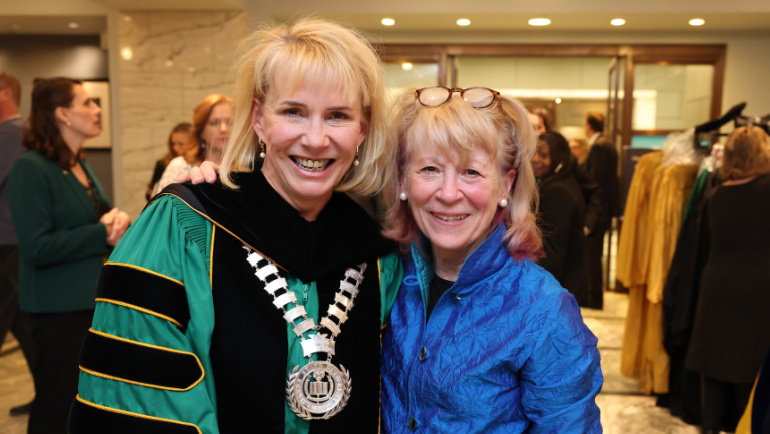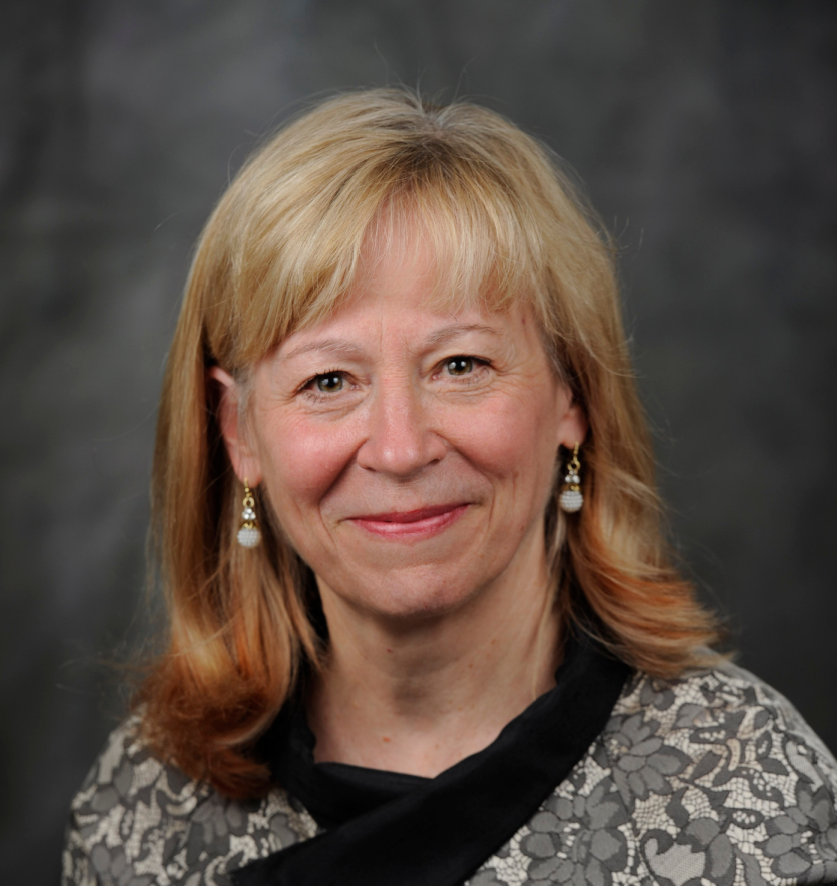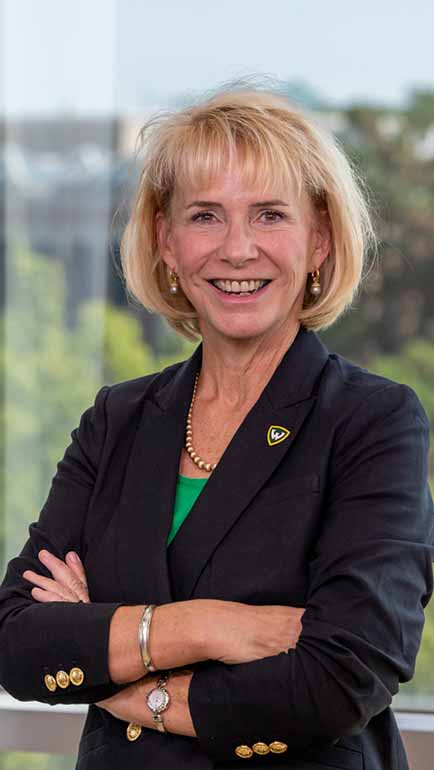
Most trailblazers don’t have time to think about those who will walk in their path. Kimberly Andrews Espy, Ph.D., and Geraldine Richmond, Ph.D., are not most trailblazers.
With impressive careers building to their current roles — Dr. Espy is Wayne State University’s president and Dr. Richmond serves as the Department of Energy’s (DOE) Under Secretary for Science and Innovation — both women remain steadfastly committed to supporting and uplifting the next generation of leaders through equitable, inclusive education. Accomplished scientists and analytical thinkers, the pair also share a holistic view of the role research — and higher education in general — play in improving lives and society.

While their paths have diverged since first meeting at the University of Oregon in 2011, where Dr. Richmond is the presidential chair in science and professor of chemistry and President Espy previously served as vice president for research and innovation and dean of the graduate school, the two have stayed in touch. They reconnected in person for the first time in years at Wayne State’s presidential investiture ceremony on March 18, where Dr. Richmond shared remarks and President Espy outlined her vision for Wayne State University.
“Dr. Espy has always had incredible vision, paired with great enthusiasm. I’m so delighted that she’s Wayne State’s president because she’s worked her way up, and she leads by listening first,” Dr. Richmond said. “No university is an island, and she really knows what it means to be out in the community, making connections and advocating for students, particularly those who are underrepresented. This role is tailor-made for her because that’s her heart and soul.”
Science, research propel the future

President Espy describes Dr. Richmond as the “embodiment of excellence,” whose commitment to service, mentorship and using research to promote policies that advance society is aspirational for all. Her work exemplifies the ideal symbiotic scientist-society relationship, which is foundational to President Espy’s view of higher education.
Dr. Richmond’s research bridges the fields of chemistry and physics and focuses on understanding the molecular characteristics of water surfaces, which relate to various environmental issues such as alternative energy sources and atmospheric chemistry. In her current role, Dr. Richmond oversees DOE's Office of Science, the nation’s largest federal sponsor of basic research in the physical sciences; DOE’s applied research and development areas of nuclear, fossil, and renewable energy and energy system integrity; and 14 of the 17 DOE national laboratories and their user facilities. Dr. Richmond served two terms as a presidential appointee to the National Science Board (2012-21). In addition to her federal service, she has continued teaching and research at the University of Oregon, where she has worked with countless undergraduate, graduate and postdoctoral students for more than 35 years.
“Dr. Richmond has always cared deeply about her own research, but engages in so many other ways,” President Espy said. “She’s furthering policies that have real-world impact, while also serving as a mentor and advocate. Dr. Richmond is giving to our future in amazing ways.”
Uplifting others
Dr. Richmond is also the founding director of COACh, a grass-roots organization that has helped more than 25,000 women scientists and engineers — including President Espy — in career advancement in the United States and more than two dozen developing countries over the past 20 years. COACh offers career-building workshops, research and educational partnerships, and support for obtaining research funding, publishing research results, communicating science effectively, fellowship applications, negotiation and leadership techniques, and more.
Indeed, much of the pair’s deep mutual respect stems from their similar and shared experiences as high-achieving women in STEM fields. Both are the first woman to hold their respective roles, and they expressed a mutual appreciation for each other’s ability to balance professional and personal fulfillment.
“We started COACh to get more women into leadership roles because we saw so few women that were presidents, vice presidents, deans and department chairs. The program was built to address the unique challenges that come with trying to be respected as a full-blown scientist while also doing an administrative job that had normally been held by a man,” Dr. Richmond said. “As women, we have a narrow range of ways that we can act and be accepted. We needed to rethink the way women leaders are perceived — and so we did.”
Dr. Richmond said she is honored to celebrate the next chapter in Wayne State’s history under President Espy’s leadership.
“So many young people out there today need to hear that they belong in higher education, and that science is a great way to make a difference,” she said. “Dr. Espy is the perfect person to deliver on that message: She did it, and you can, too.”
